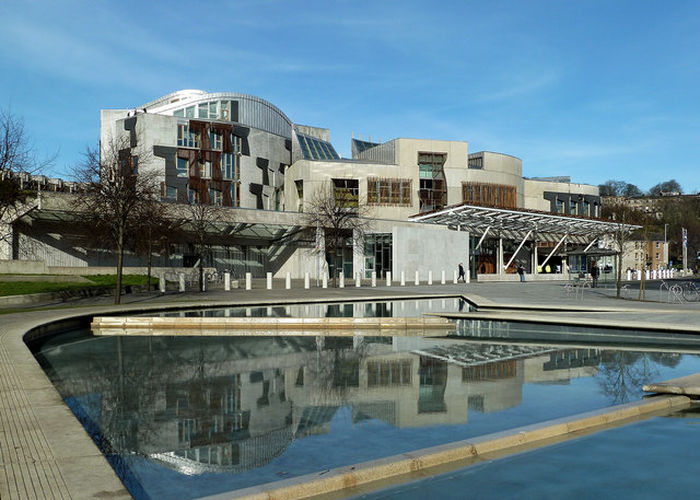The strange death of unionist England
Peter McLaughlin argues that a trend of indifference to the union has developed in England, threatening the stability and governance of the United Kingdom.

The current ruling party in the United Kingdom is the Conservative and Unionist Party: the Tories’ early 20th century opposition to Irish ‘home rule’ was so strong that they changed their name to incorporate the commitment. The British state was after all created by the Acts of Union 1707 and 1800; the Tories saw the defence of the union as central to belief in Britain. In the end, Irish nationalists demolished the 1800 Acts by force in the Irish War of Independence, but dedication to what remained of the union was still powerful in British politics for a long time: notably, unionist worries led to the defeat of May’s Brexit Withdrawal Agreement.
But interestingly, these worries were shared only by a minority of those who had voted for Brexit. When asked to choose between Brexit and the union late last year, most Leave voters chose Brexit. And as the Conservatives have increasingly come to represent Leave Britain, especially under Boris Johnson, unionism among English Tories has dwindled: even in 2018, 79% of English Conservatives saw Scottish independence as a price worth paying for Brexit. While traditional Tories would be shocked by these figures, they simply reflect recent fundamental shifts within the party towards a continuation of the politics of Leave. The fact is that the Conservative and Unionist Party is no longer particularly unionist.
Some (notably Fintan O’Toole) argue that rising right-wing English nationalism, driven by Brexit, is behind unionism’s decline. But besides the fact that no more people feel ‘more English than British’ than did before the referendum (23% in 2017, 26% in 2013), this explanation is refuted by the fact that this isn’t just a right-wing trend. While Labour was a historically unionist party, today, a supermajority of British Labour voters either support Irish unity or have no opinion. Indeed, among the whole English public, less than half support Scotland remaining in the union, and only 26% for Northern Ireland.
“If the government no longer cares about the union, it will no longer think about the impact of its decisions on the nations.”
What has really happened is the emergence of a new, cross-party attitude in English politics: an attitude that identifies with Britain (not England), but which does not link Britain to the union. On this account, Britain is not essentially a union: it is the name of a state. This state currently encompasses four nations, but it could, in principle, continue to exist and even thrive without Scotland or NI, or Wales, for that matter. This attitude is why (as YouGov has reported) “Brits increasingly don’t care whether Northern Ireland remains in the UK”. Widespread unionism has been replaced: not by nationalism, but by indifference.
The decline of unionism in English politics was sudden and unforeseen, but with countless new MPs loyal to Johnson’s vision having been elected in December, it’s here to stay. Nationalists across these islands might take this as reason to rejoice; but this would be shortsighted. As will be discussed below, this development has already led to worse governance from Westminster, and will continue to destabilise UK politics going forward. If the government no longer cares about the union, it will no longer think about the impact of its decisions on the nations.
To illustrate this, consider that since NI general election results are basically irrelevant to the major parties (excepting the strange situation from 2017–2019), governments have no self-interested reason to consider Northern Irish interests. But widespread unionism ensured that any government would have to consider the effects of its actions on NI, at least insofar that these affected the union. I had previously sharply criticised this type of minimal representation for NI; but deeply imperfect representation in government is still better than none at all. And if the government becomes neutral on the union, they have no reason to care about NI.
In Scotland, things used to be different: Scottish seats contributed to government majorities, so Westminster parties had reason to respond to Scottish demands. But with the SNP dominating successive elections, the UK-wide parties have focused less and less on Scotland’s peculiarities (a complaint famously voiced by ex–Scottish Labour leader Johann Lamont). Scottish nationalists argue that the SNP better represents Scotland in parliament; but unless they end up in coalition (for which indyref2 is a necessary condition), they will only harm the country’s representation in government. If the government has no reason to think about Scotland, it won’t; and without unionism, it doesn’t. Wales is more complicated, but ultimately in a similar situation.
We have been given an incomparably clear example of these developments recently: the new Internal Market Bill, which the government have admitted breaks international law. The painful mess that is the Irish border question, thought to have been settled, has been forced back onto the agenda by this bill; and the government has been accused of “stealing power from the devolved administrations”. This recklessness, which even hurts England through international repercussions, is made possible by ignoring Wales, Scotland, and NI. Independence offers no escape (just look at Ireland); these nations’ politics are being destabilised by English trends.
Unionism encouraged wider considerations and caution from the government, and it reassured devolved administrations about Westminster, allowing them to govern with more certainty and thus stability. The loss of unionist sentiment in England has happened suddenly and almost silently, but it is one of the biggest developments in recent British politics. It will affect so much of what is coming in the UK in the near future, and almost certainly for the worse.
 News / Cambridge academics stand out in King’s 2026 Honours List2 January 2026
News / Cambridge academics stand out in King’s 2026 Honours List2 January 2026 Interviews / You don’t need to peak at Cambridge, says Robin Harding31 December 2025
Interviews / You don’t need to peak at Cambridge, says Robin Harding31 December 2025 Comment / What happened to men at Cambridge?31 December 2025
Comment / What happened to men at Cambridge?31 December 2025 News / Varsity’s biggest stories of 202531 December 2025
News / Varsity’s biggest stories of 202531 December 2025 News / Unions protest handling of redundancies at Epidemiology Unit30 December 2025
News / Unions protest handling of redundancies at Epidemiology Unit30 December 2025










